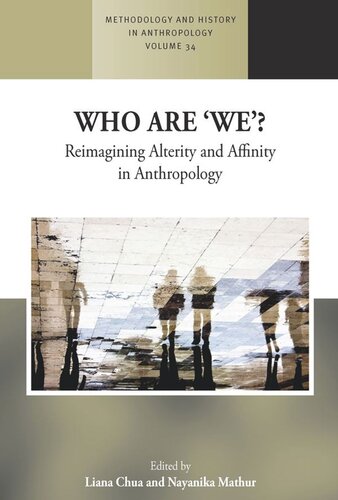

Most ebook files are in PDF format, so you can easily read them using various software such as Foxit Reader or directly on the Google Chrome browser.
Some ebook files are released by publishers in other formats such as .awz, .mobi, .epub, .fb2, etc. You may need to install specific software to read these formats on mobile/PC, such as Calibre.
Please read the tutorial at this link: https://ebookbell.com/faq
We offer FREE conversion to the popular formats you request; however, this may take some time. Therefore, right after payment, please email us, and we will try to provide the service as quickly as possible.
For some exceptional file formats or broken links (if any), please refrain from opening any disputes. Instead, email us first, and we will try to assist within a maximum of 6 hours.
EbookBell Team

4.3
8 reviewsWho do “we” anthropologists think “we” are? And how do forms and notions of collective disciplinary identity shape the way we think, write, and do anthropology? This volume explores how the anthropological “we” has been construed, transformed, and deployed across history and the global anthropological landscape. Drawing together both reflections and ethnographic case studies, it interrogates the critical—yet poorly studied—roles played by myriad anthropological “we” ss in generating and influencing anthropological theory, method, and analysis. In the process, new spaces are opened for reimagining who “we” are – and what “we,” and indeed anthropology, could become.